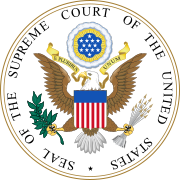Atty. Lester Pines explains Colorado baker's case ruling
The U.S. Supreme Court

today issued its ruling in a case arising from a Colorado baker's refusal to make a wedding cake for a same-sex couple. Noted Madison attorney Lester Pines then posted on Facebook this explanation:
---------------------------

today issued its ruling in a case arising from a Colorado baker's refusal to make a wedding cake for a same-sex couple. Noted Madison attorney Lester Pines then posted on Facebook this explanation:
---------------------------
The decision just came down from the U.S. Supreme Court in the Masterpiece Cake case, in which a baker in Colorado refused to make a cake for a same-sex wedding. The Colorado Civil Rights Commission, enforcing a law that prohibits discrimination against LGBTQ people (and many other protected classes), had sanctioned the baker. The Supreme Court overruled the decision of the Colorado Court of Appeals that upheld the sanction, but did so on procedural, rather than substantive grounds, and made this statement:
"Our society has come to the recognition that gay persons and gay couples cannot be treated as social outcasts or as inferior in dignity and worth. For that reason the laws and the Constitution can, and in some instances must, protect them in the exercise of their civil rights. The exercise of their freedom on terms equal to others must be given great weight and respect by the courts. At the same time, the religious and philosophical objections to gay marriage are protected views and in some instances protected forms of expression.
As this Court observed in Obergefell v. Hodges, . . .“[t]he First Amendment ensures that religious organizations and persons are given proper protection as they seek to teach the principles that are so fulfilling and so central to their lives and faiths.” Nevertheless, while those religious and philosophical objections are protected, it is a general rule that such objections do not allow business owners and other actors in the economy and in society to deny protected persons equal access to goods and services under a neutral and generally applicable public accommodations law. See Newman v. Piggy Park Enterprises, Inc., 390 U. S. 400, 402, n. 5 (1968)"









No comments:
Post a Comment